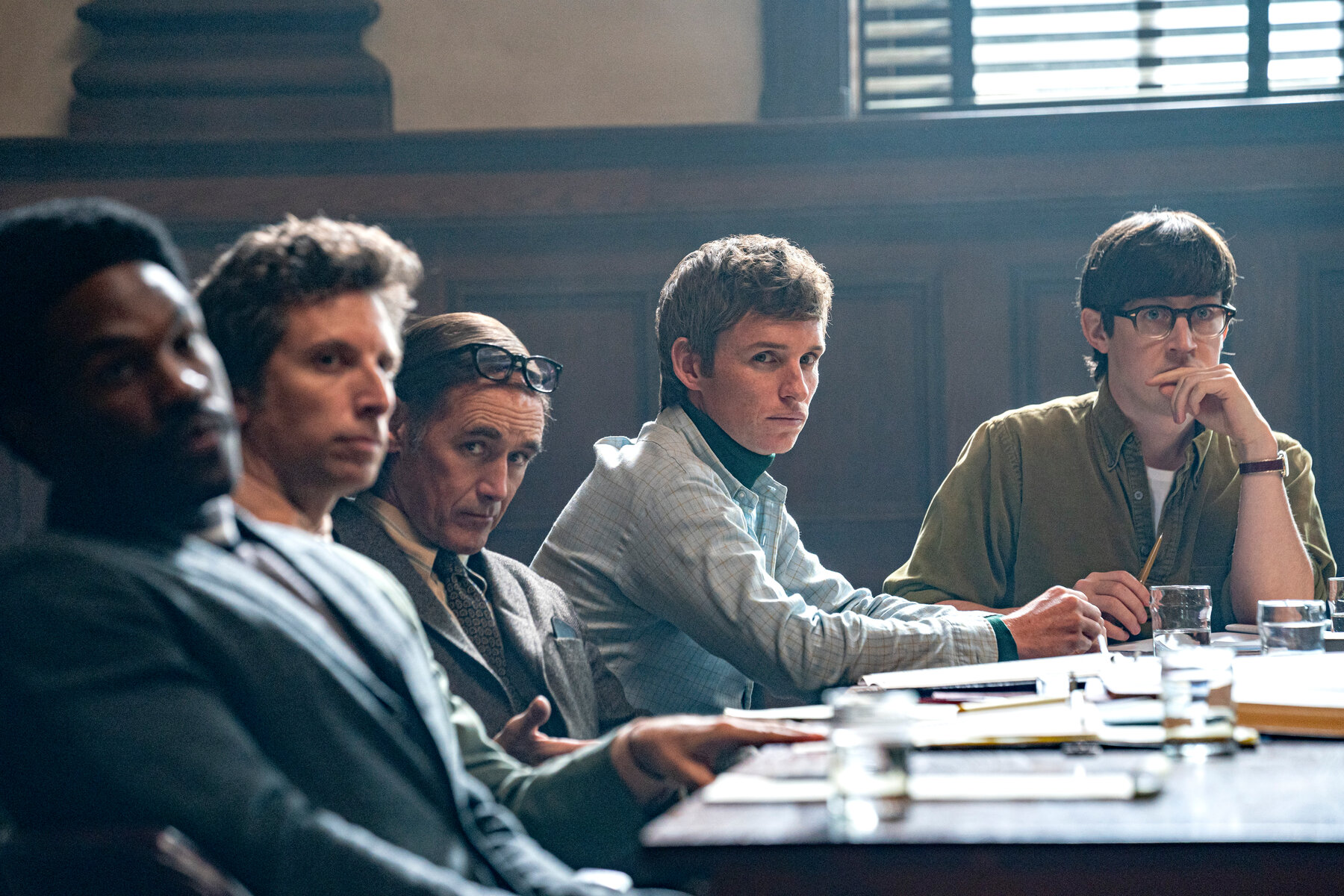Film Review: The Trial of the Chicago 7 (2020)

What became a lifelong interest in radical politics began with a pile of books given to me by a small-town high school librarian in the early 1990s. Through these books, and with the help of punk rock, I learned about Huey Newton and Bobby Seale, Eldridge Cleaver, and Fred Hampton. I learned about Leonard Peltier and Wounded Knee, Abbie Hoffman and the Yippies, and Jane Fonda and MC5, who were all deemed “un-American” and dangerous by the U.S. government. I learned how the FBI and other law enforcement agencies conspired to murder and discredit perceived enemies through intimidation, infiltration, and misinformation – and how they got away with all of it. Regrettably, I don’t recall that librarian’s name, but I’d like to thank him for putting me on a track that I’m proud to say I’m still on today.
Had Aaron Sorkin’s The Trial of the Chicago 7 come out back when I was in high school, it would have been a major boon to my budding politics. The name-dropping alone would have kept me in the card catalog for months hunting down everything ever written by or about its protagonists. This is, in a round-about way, part of my problem with the film – albeit one I admit has no reasonable solution: The Trial of the Chicago 7 is too glossy. That is to say, it skims the surface of late-60s radicalism, but never fully captures the unruly magic and energized fear surging through college campuses and over-policed neighborhoods of the time. As a primer or a companion piece to era-specific leftist politics and the state’s calculated response to them, it’s a wonderful slice of cinema, but it lacks bite.
Part of this is due to the shortcomings of narrative film. Telling an extremely nuanced and complex story in 130 minutes isn’t easy. Naturally, events will have to be composited and truncated for time, but, in this case, it does the story a moderate disservice. Stopping short of suggesting The Trial of the Chicago 7 should have instead been an epic, in-depth 8-part (or more) documentary series on the events leading up to the trial, the proceedings, and its aftermath, I will submit that a more Cinéma vérité approach may have benefited the experience.
Stylistically, The Trial of the Chicago 7 evokes courtroom classics like 1992’s A Few Good Men (also written by Sorkin, but directed by Rob Reiner), whose polished veneer wipes clean all the grit and chaos one might expect from a tale of counterculture defiance. Understandably, the courtroom aspect of the film requires a certain static structure, but surely there is a way to inject some life into the proceedings. More so, the way Sorkin stages his demonstration scenes and courtroom exterior protests have an air of inauthenticity. These moments, stripped of urgency by prop signs with generic slogans painted on them and hastily-clad extras whose costumes look straight out of a production of Hair, undercut the significance of the era’s political upheaval. Through the George Floyd protests last summer, we all saw what a momentous movement looks like in real-life, and Sorkin’s portrayal doesn’t cut the mustard.
However, with all my grievances aired, The Trial of the Chicago 7 is still a film well worth your time. The cast – including Sacha Baron Cohen as Abbie Hoffman, Yahya Abdul-Mateen II as Bobby Seale, and Mark Rylance as William Kunstler – is a wonderful assortment of talent who admirably embodies the spirit of their historical counterparts. As an ensemble piece that also includes Joseph Gordon-Levitt, Michael Keaton, Eddie Redmayne, Jeremy Strong, and Frank Langella, Sorkin wonderfully directs his players to eke as much as possible from the claustrophobic setting.
This – along with a hope that The Trial of the Chicago 7will inspire young (and not-so-young) viewers to take to the internet or their local libraries in search of the true histories portrayed in the film – is more than enough to satisfy me. In fact, I issue this as a challenge: after the film, start reading and researching. Learn for yourself what happened, why, and to whom. I dare you.

